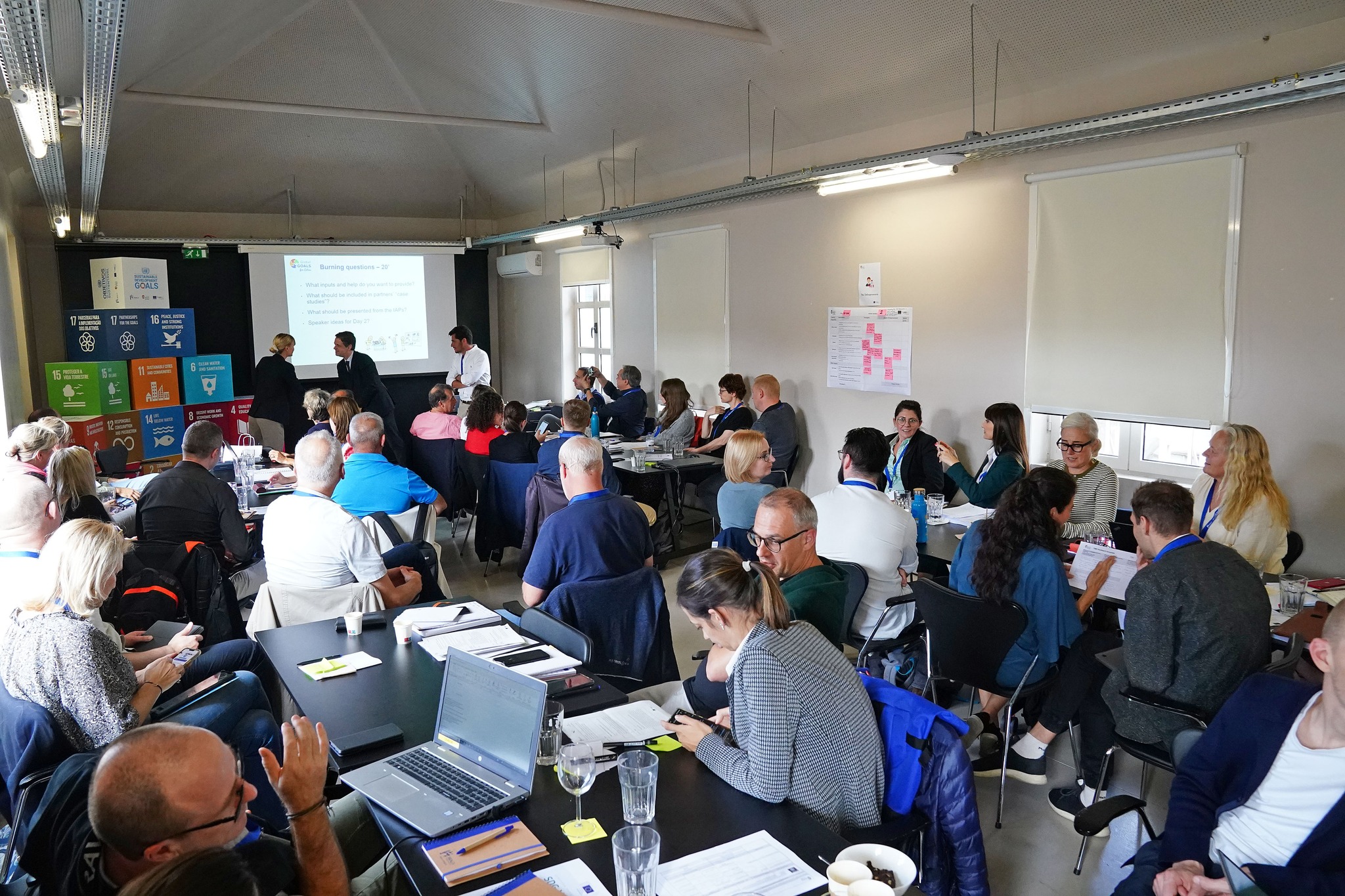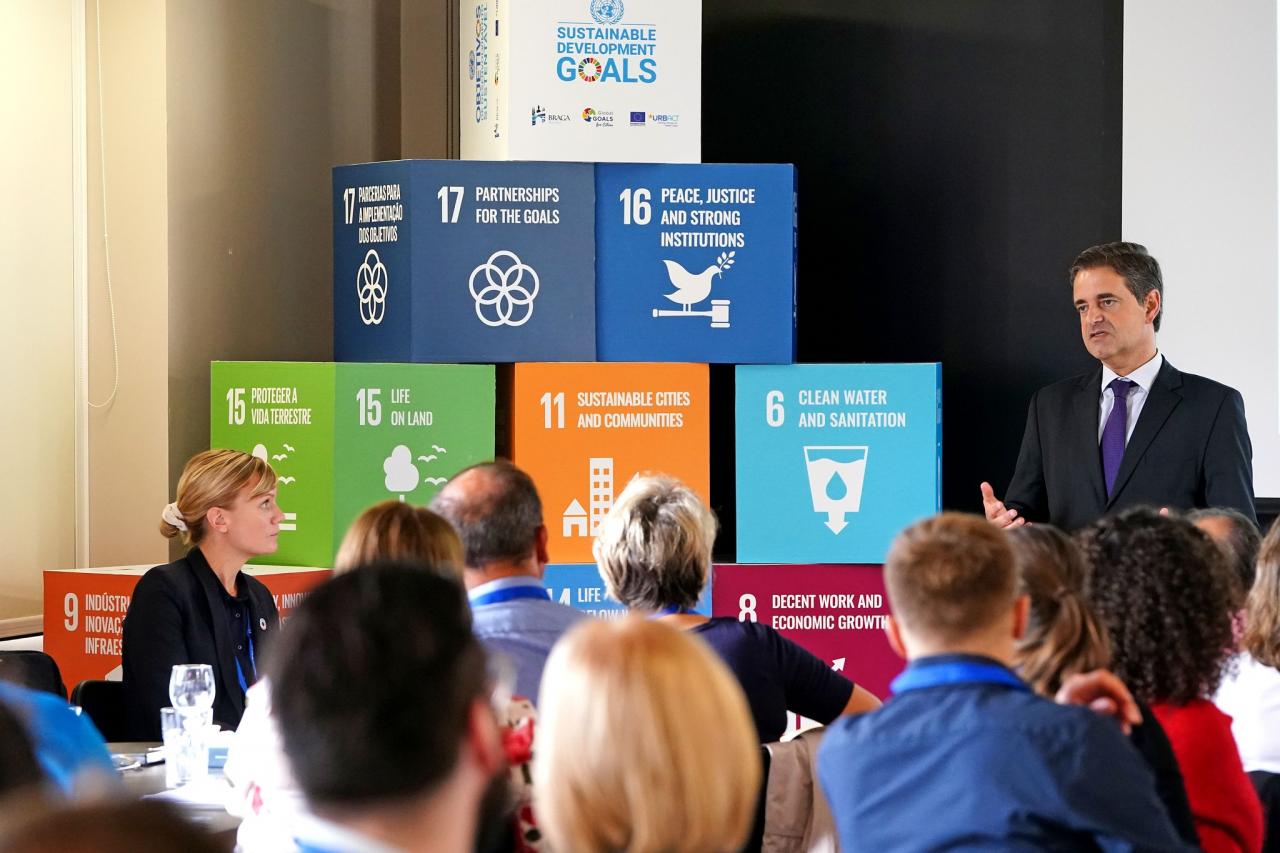The session took place in September, at the Gnration building.
"Global Goals for Cities" is a pilot network and strategic partnership aimed at accelerating progress. Essentially, to achieve the Sustainable Development Goals (SDGs). To this end, the network promotes peer learning and the planning of integrated actions in 19 cities in the European Union. Namely, Klaipėda (Lithuania), Braga (Portugal), Bratislava (Slovakia), Gävle (Sweden), Glasgow (United Kingdom), Heraklion (Greece), La Rochelle (France), Manresa (Spain), Reggio Emilia (Italy), Schiedam (Netherlands), Veszprém (Hungary), Solingen (Germany), Mouscron (Belgium), Trim (Ireland), Ozalj (Croatia), Jihlava (Czech Republic), Dzierżoniów (Poland) and Veliki Preslav (Bulgaria).
Project coordinators from 19 cities were present at the activity. As well as sustainability experts and representatives of the European Union to promote the implementation of the SDGs. Braga presented the implementation of this agenda and the next steps in sustainable development. 
The sessions also had the presence of Mayor Ricardo Rio, demonstrating the importance of this topic for the municipal executive. “The SDGs are a very important tool for managing the City. Allowing a holistic approach and the implementation of a planning strategy. Through the implementation and monitoring of specific initiatives, namely through the sustainable development index. This is a work in partnership with the Catholic University”, said the mayor. Also stressing the importance of other tools. Such as the sustainability report, the connection made between the municipal budget and the SDGs or the mobilization of society for this topic.
The President of the Municipality of Braga also recalled data from an OECD study. Which indicate that more than 60% of the SDGs can only be achieved with direct intervention by local and regional authorities. “Cities are leading the way in terms of sustainability. But beyond political will, specific funding is needed for activities carried out by local and regional authorities. Without which it becomes difficult to continue with the projects and, consequently, to achieve the objectives proposed by the EU for 2030, ”he said.

